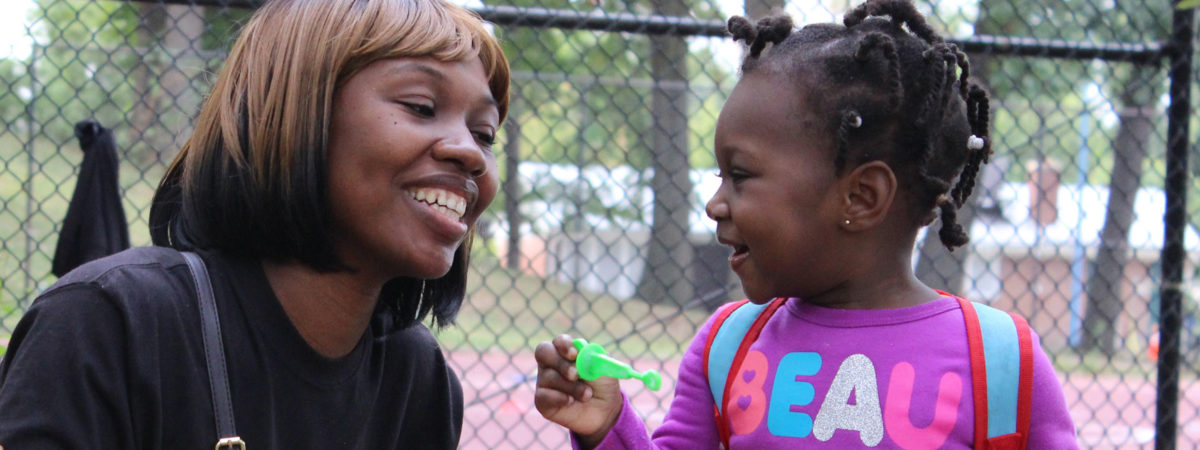
While all students and teachers at Verizon Innovative Learning Schools had the advantage of already having their own initiative-provided devices with data plans and knowing how to use apps for learning, their parents and caregivers, who were now facilitating their learning, may not have been familiar with the technology.
“During school closures, I did quite a bit to coach parents and families on the responsible use of devices and the ways that the technology and access can be leveraged to support student learning,” said Jillian Wetzel, the former Verizon Innovative Learning Schools coach at Harris Middle School in San Antonio, Texas. “I had wonderful opportunities to share resources with families that empowered them to take a larger role in their child’s academic success.”
Wetzel hosted virtual chats along with her school’s principal, supporting campus leadership in communicating student expectations for distance learning and explaining the various apps and technology tools that were being used to facilitate digital learning. She noted the importance of keeping communications “clear, consistent, streamlined, and accessible to all families” to ensure all students and their families felt supported despite the challenging circumstances.
“Our district and our campus provided synchronous and asynchronous opportunities for families to familiarize themselves with the essential technology tools and apps being used during school closure,” Wetzel said. “To combat the information and resource overload many families were experiencing, I curated an eBook with select content in an effort to be mindful of the needs of families.”
José Gonzalez, the Verizon Innovative Learning Schools coach at Bunche Middle School in Compton, California, began to notice his tech team students—usually some of Bunche’s most motivated students—were not turning in their assignments. He grew concerned that the virus was affecting their families, so he held a virtual meeting for the families.
Gonzalez typically maintains a good relationship with his students’ parents and caregivers throughout the school year, as the tech team relies on strong parent involvement. “Education is not just academics; education is about relationships—the ones we build with our students and their parents,” he said. “I always reach out to parents to see how they are doing, since the home environment is a large influence on students’ well-being. I view parents as partners in the teaching process since buy-in from them ensures that they are supportive of what I do in my classroom.”
In keeping with his philosophy of relationship building, following that first Zoom meeting, he wanted to continue to encourage and connect with the adults at home. He decided to hold Zoom cooking classes, in which the attendees chose dishes to cook that represent their culture.
“I knew they had extra pressures at home due to the pandemic, so I wanted to provide them a place to communicate and share ideas,” he explained. Moreover, these cooking classes allowed parents to become more familiar with Zoom, demystifying the technology and engaging them in the school community.
Both Gonzalez and Wetzel agree it is important to engage with families throughout the school year, not just during a health crisis. According to the Centers for Disease Control and Prevention (CDC) “research shows that parent engagement in schools is closely linked to better student behavior, higher academic achievement, and enhanced social skills,” while making it more likely that students will avoid unhealthy behaviors.
“It is vital to stay connected with families all of the time, but especially during school closure,” Wetzel said. “If our families are not made aware of the expectations around distance learning, then how as educators can we expect them to partner with us to help support and engage our students in remote learning?”
As Gonzalez moves to a new school in the fall, he recognizes the need to build strong relationships with the families of his new students but acknowledges the challenges he will face if the school year begins remotely. “Building relationships involves face time, not FaceTime,” he said. “You really need those initial contacts to begin to build trust. The reason I had higher participation and attendance rates in my classes was due to the relationships I had before the pandemic.”
Wetzel believes the pandemic illuminated the need for educators to prioritize helping families build capacity to support their children’s academic success: “My hope is that we as educators have the opportunity to grapple with some of the assumptions we make about family involvement and recognize the need for systemic and sustainable changes to the way we support our students’ families.”
To learn more about the Verizon Innovative Learning Schools initiative, visit verizon.digitalpromise.org.

We want to hear from you!
Please take this 5-minute survey and help us serve you better.
